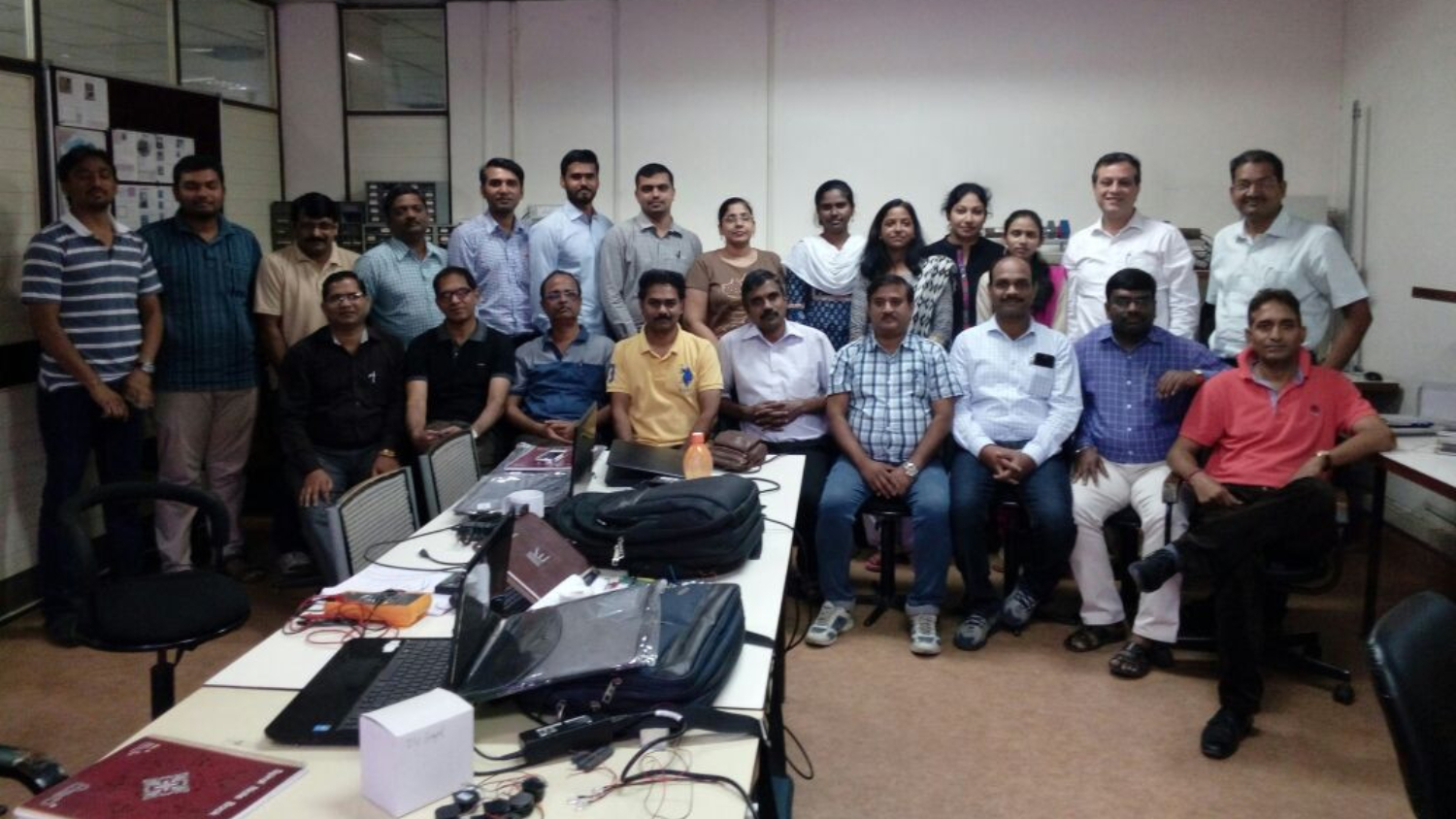Teaching Lab @ IUAC
Science is the study of the physical world by systematic observations and experiments. Proper science education is essential for cultivating a society where reasoning and logical thinking prevails and not superstition and irrational beliefs. Science education is also essential for training enough technicians, engineers and scientists for the economy of the modern world. It is widely accepted that personal experience in the form of experiments and observations, either carried out by students or performed as demonstrations by teachers, are essential to the pedagogy of science. However, almost everywhere science is mostly taught from the text books without giving importance to experiments, partly due to lack of equipment. As a result, most of the students fail to correlate their classroom experience to problems encountered in daily life. To some extent this can be corrected by learning science based on exploration and experimenting.
The advent of personal computers and their easy availability has opened up a new path for making laboratory equipment. Addition of some hardware to an ordinary computer can convert it in to a science laboratory. Performing quick measurements with good accuracy enables one to study a wide range of phenomena. Science experiments generally involve measuring/contr
physical parameters like temperature, pressure, velocity, acceleration, force, voltage, current etc. If the measured physical property is changing rapidly, the measurements need to be automated and a computer becomes a useful tool. For example, understanding the variation of AC mains voltage with time requires measuring it after every millisecond. The ability to perform experiments with reasonable accuracy also opens up the possibility of research oriented science education. Students can compare the experimental data with mathematical models and examine the fundamental laws governing various phenomena. Research scientists do the same with highly sophisticated equipment.
Teaching lab started with the objective of developing cost effective equipment for teaching science. We have developed several equipment for this purpose. The basic technique followed is to provide Analog and Digital Input/Output capabilities to a computer through the input/output connectors on the interfacing equipment. Experiments are designed utilizing these I/O capabilities and suitable sensor elements to convert physical parameters into voltage signals.The first version, released in 2005, used analog and digital circuits interfaced to the parallel port of the PC. Later versions were based on micro-controllers communicating with the PC using serial or USB interface. The versions released from 2011 are USB powered. All designs are open sourced. Software is distributed under GNU General Public License and the hardware designs are under CERN OHL.
Python Programming
Python is used for developing the computer interfaced science experiments. It can also be used for scientific computation and data visualization. More information is available HERE..
Training Programs
Inter University Accelerator Centre, New Delhi, conducts different kinds of programs to promote the usage of computers in the field of science education. One Week training long training programs are conducted twice every year. Physics and electronics teachers from Colleges/Universities can apply for attending this. Selected candidates are given travel and accommodation support.
To be informed about the training programs and other developments you may join the phoenix mailing list from HERE. The list archives are HERE.
We also encourage other institutions to conduct One Day Workshops on this topic.
Group Members and Contact Details








